“Holy See and UNESCO join forces for literacy and peace”
Pope's message on International Literacy Day
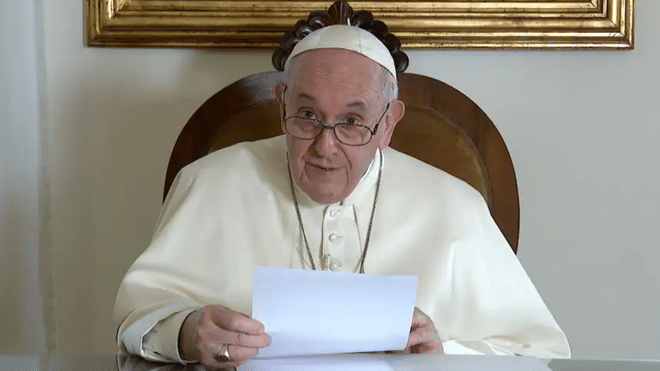
We publish below the Message that the Holy Father Francis sent – through the Cardinal Secretary of State Pietro Parolin – to the Director General of UNESCO, Mrs Audrey Azoulay, on the occasion of the International Day of Literacy being celebrated today:
Message
Ms Audrey Azoulay
Director-General of UNESCO
Paris
His Holiness Pope Francis sends greetings to the participants in the World Conference being held at UNESCO headquarters in Paris, as part of the celebration of the 2023 International Literacy Day. He likewise expresses his closeness to all those involved in various initiatives at national, regional and local levels around the world to mark this important Day and to reflect on this year’s chosen theme: “Promoting Literacy for a World in Transition: Building the Foundation for Sustainable and Peaceful Societies”.
Education in literacy has a basic and central role in the development of each person, in their harmonious integration into the community and in their active and effective participation in the advancement of society. The Holy See particularly values UNESCO’s efforts in favour of literacy which, while responding to economic and practical needs, is fundamentally aimed at the promotion and development of people at the level of their personal, social and spiritual vocation.
Estimates of the number of people lacking basic literacy skills remain alarming and this represents an obstacle to the full development of their potential. Our world needs everyone’s expertise and contribution in order to meet more effectively the challenges of our time. Among these challenges, I would like to mention three:
1) A first challenge is that of literacy for the promotion of peace. In a world torn by conflicts and tensions, it is essential not to grow accustomed to the language of war and discord. If we can learn to inflict wounds with ever more appalling weapons, we can also learn to cease doing so. If we can hurt someone, a relative or friend with harsh words and vindictive gestures, we can also choose not to do so. Learning the lexicon of peace means restoring the value of dialogue, the practice of kindness and respect for others. “If we make a daily effort to do exactly this, we can create a healthy social atmosphere in which misunderstandings can be overcome and conflict forestalled. Kindness… transforms lifestyles, relationships and the ways ideas are discussed and compared. Kindness facilitates the quest for consensus; it opens new paths where hostility and conflict would burn all bridges” (Fratelli Tutti, 224). Moreover, peace is precisely what UNESCO itself is charged with promoting in people’s minds and hearts through education, science, culture and communication. These remain the only lawful and effective “weapons” to use for investing more resources and energies in building hope for a better future.
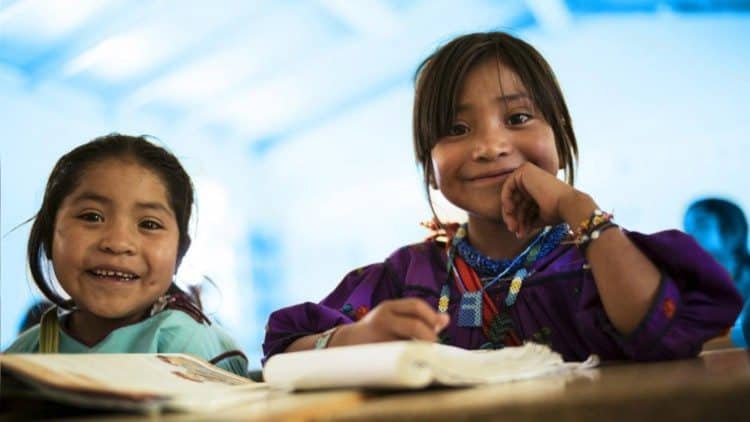 2) A second challenge is that of digital literacy. The digital revolution and developments in artificial intelligence are rapidly expanding our access to information and our ability to connect with one another beyond physical boundaries. Nonetheless, a large “digital divide” persists, with millions of people side-lined because they are deprived of access not only to essential goods but also to information and communication technologies. Indeed, many are harmed by the divisiveness and hatred found on “digital highways”. Added to this is the serious threat of handing over decision-making about the value of human life to the computational logic of electronic devices. In order to prevent technology from being mismanaged, getting out of control or even becoming harmful for people, policies and laws intended to promote the acquisition of digital skills will need to be attentive to broader ethical reflection on the use of algorithms, by guiding the use of new technologies towards responsible and human ends.
2) A second challenge is that of digital literacy. The digital revolution and developments in artificial intelligence are rapidly expanding our access to information and our ability to connect with one another beyond physical boundaries. Nonetheless, a large “digital divide” persists, with millions of people side-lined because they are deprived of access not only to essential goods but also to information and communication technologies. Indeed, many are harmed by the divisiveness and hatred found on “digital highways”. Added to this is the serious threat of handing over decision-making about the value of human life to the computational logic of electronic devices. In order to prevent technology from being mismanaged, getting out of control or even becoming harmful for people, policies and laws intended to promote the acquisition of digital skills will need to be attentive to broader ethical reflection on the use of algorithms, by guiding the use of new technologies towards responsible and human ends.
3) A third challenge is that of literacy for integral ecology. Given that the destruction of nature is closely linked to the “throwaway culture”, which characterizes much of contemporary life, this will mean promoting with patience and tenacity the adoption of more sober and cohesive approaches to life. These, in addition to having a direct impact on the care of our neighbour and creation, can inspire in the long term a genuinely sustainable policy and economy for the quality of life of all the peoples of the earth, especially the most disadvantaged and those most at risk.
With these sentiments, the Holy Father sends his good wishes to all and gives the assurance of his prayers for the fruitfulness of the reflections associated with the 2023 International Literacy Day, as well as for the success of your commitment towards greater literacy, which aims to lay the foundation of sustainable and peaceful societies. Upon you, your colleagues and all involved in promoting literacy, Pope Francis invokes abundant blessings of wisdom, joy and peace.
Cardinal Pietro Parolin
Secretary of State
Related

More than a Decade of Service, Reform, and Hope
Exaudi Staff
21 April, 2025
4 min
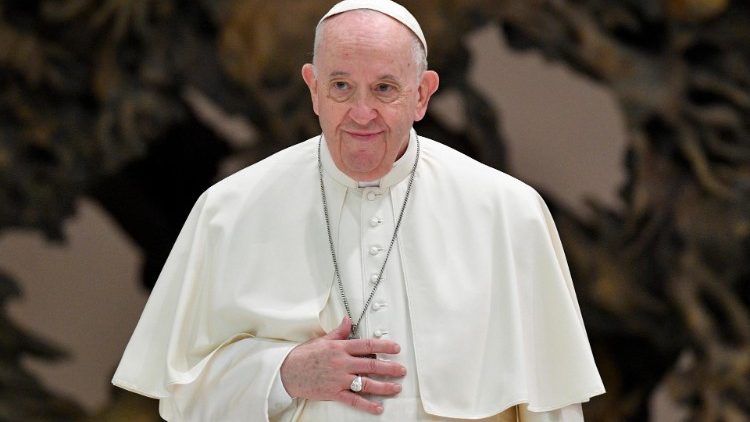
The Pontificate of Pope Francis: A Leadership of Compassion and Renewal for the Church
Exaudi Staff
21 April, 2025
3 min
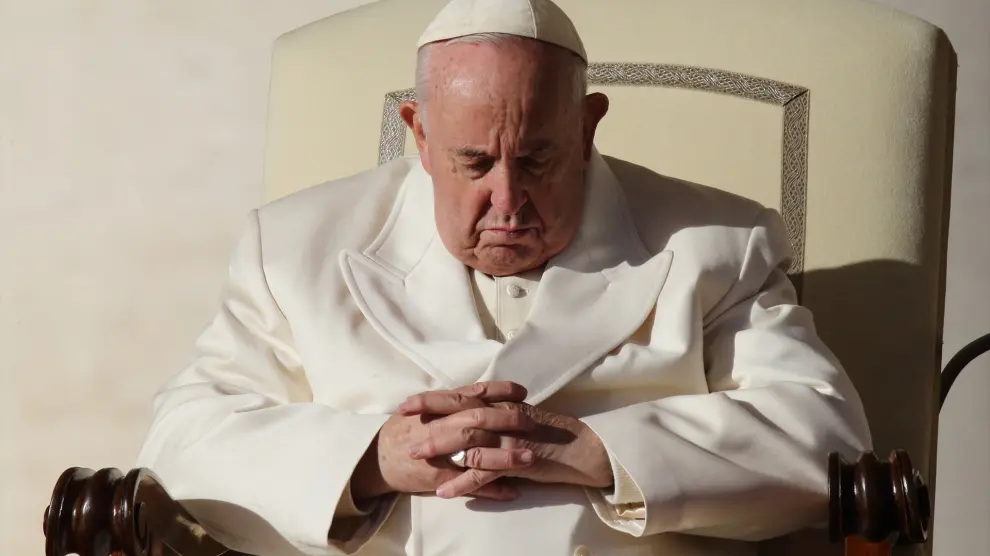
Pope Francis has died
Exaudi Staff
21 April, 2025
2 min
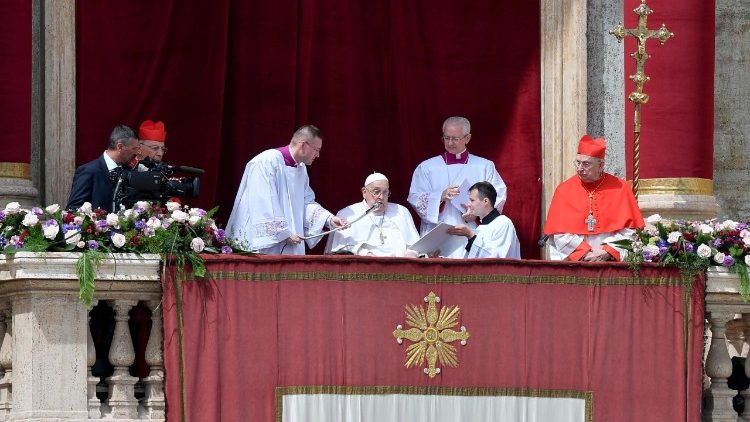
Pope Francis Calls for Global Peace in His Easter Message
Exaudi Staff
20 April, 2025
2 min
 (EN)
(EN)
 (ES)
(ES)
 (IT)
(IT)

